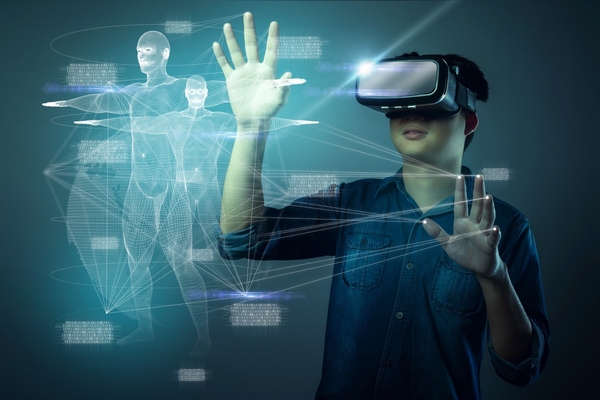advertisement
Embracing The Immersive Power of VR and AR

In a bustling city, a reputable firm found itself facing a daunting challenge: engaging stakeholders for a groundbreaking sustainable energy project that had the potential to revolutionize renewable energy usage. Traditional methods of communication had fallen short, unable to capture the true essence of the project and generate the desired enthusiasm among stakeholders. But within the depths of the firm’s creative minds, a spark ignited.
They had heard whispers of a technology that held the power to transport individuals into alternate realities where they could witness and experience the project’s positive impact firsthand. That technology is Virtual Reality (VR).
With determination in their hearts and VR headsets in hand, the firm created a virtual world where stakeholders could immerse themselves in the very heart of the sustainable energy project.
advertisement
Embracing the Immersive Power of VR and AR
Virtual Reality (VR) and Augmented Reality (AR) have emerged as transformative tools for stakeholder engagement, surpassing traditional communication methods. These technologies transport stakeholders into captivating experiences, allowing active participation and fostering deep emotional connections. Through VR goggles or interactive AR applications, stakeholders witness firsthand project impacts, develop profound understanding, and establish authentic connections, leaving lasting impressions.
The popularity and adoption of VR and AR in stakeholder engagement have experienced significant growth. A report by PwC in 2020 revealed that 60% of companies are already using or planning to use AR and VR for stakeholder engagement. These technologies enhance communication, collaboration, and decision-making. As technology evolves, we can expect even greater adoption as companies seek seamless communication and collaboration with stakeholders.
advertisement
Numerous organizations have successfully integrated VR and AR in their stakeholder engagements, achieving remarkable results. For instance, Coca-Cola employed AR to create an interactive packaging experience that engages consumers and communicates sustainability messages. By scanning specially marked bottles with their smartphones, consumers gain access to virtual animations and interactive experiences showcasing Coca-Cola’s sustainability initiatives. These examples demonstrate the effectiveness of VR and AR in engaging stakeholders, educating them, and driving positive change.
Overcoming Challenges and Driving Adoption
While the potential benefits of VR and AR for stakeholder engagement are undeniable, several challenges must be addressed. The cost of implementing these technologies and creating high-quality content can be a barrier for some organizations. Additionally, the need for specialized skills and equipment may pose logistical challenges. Ensuring accessibility and inclusivity for all stakeholders, particularly those with limited access to VR and AR devices, remains a concern. Overcoming these challenges requires strategic planning, collaboration, and investment.
advertisement
To increase the adoption of VR and AR in stakeholder engagement, PR practitioners should take proactive steps. Investing in research and development to explore innovative applications of these technologies is crucial. Collaboration between PR agencies, technology companies, and content creators can drive advancements and reduce implementation barriers. Furthermore, industry associations and professional bodies should provide training and resources to equip PR practitioners with the skills needed to leverage VR and AR effectively. By embracing these technologies, PR practitioners can revolutionize stakeholder engagement, creating immersive and impactful experiences that drive meaningful connections and achieve communication goals.

As stakeholder engagement evolves in a rapidly changing digital landscape, PR practitioners must adapt and embrace new tools to capture attention and foster meaningful relationships with their audiences. Virtual Reality and Augmented Reality offer unprecedented opportunities to transform stakeholder engagement by creating immersive experiences, enhancing understanding, and leaving lasting impressions. By recognizing the advantages, learning from successful examples, addressing challenges, and taking collective action, PR practitioners can harness the power of VR and AR to engage stakeholders in innovative and impactful ways.
With a forward-thinking approach, we have already embraced these immersive technologies, seamlessly integrating them into our PR strategies. By leveraging VR and AR, we provide our clients with transformative experiences that transport their audiences into captivating virtual realms, enabling them to engage with products, services, and ideas in unprecedented ways. Through these innovative tools, we are redefining the boundaries of communication, delivering impactful narratives, and shaping memorable interactions that leave lasting impressions.
This article was written by Esther Adu-Darko, a PR Associate at Newmark Group Limited.